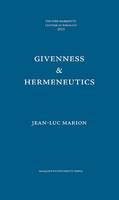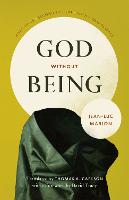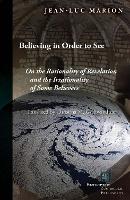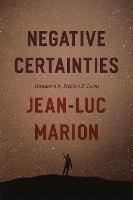Believing in Order to See: On the Rationality of Revelation and the Irrationality of Some BelieversAuthor :
Paperback
Published : Monday 3 April 2017
You may also like ...

by
Hardback
30 Jul 2013
>>
€21.00
Extended stock – Dispatch 5-7 days

by
Paperback
13 Jul 2012
>>
€35.10
Extended stock – Dispatch 5-7 days

by
Paperback
03 Apr 2017
>>
€22.22
Extended stock – Dispatch 5-7 days

by
Hardback
29 Sep 2015
>>
€42.12
Extended stock – Dispatch 5-7 days
Description
A phenomenological reflection on central aspects of Christian revelation: the practice of faith, the obligation and role of the baptized Christian, the gift of the sacraments, the future of Catholicism, the role of the Christian intellectual, examined always in light of their inherent rationality and relationship to philosophical reason.
Faith and reason, especially in Roman Catholic thought, are less contradictory today than ever. But does the supposed opposition even make sense to begin with? One can lose faith, but surely not because one gains in reason. Some, in fact, lose faith when reason is not able to make sense of the experiences of our lives. We very quickly realize that reason does not understand everything. Immense areas remain incomprehensible and irrational, which we abandon to belief and opinion. Soon we definitively renounce thinking what that has been excluded from the realm of the thinkable. Ideological nightmares arise from this slumber of reason. Thus, the separation between faith and reason, too quickly taken as self-evident and even natural, is born from a lack of rationality, an easy capitulatin of reason before what is supposedly unthinkable. Rather than lose faith through excessive rationality, we often lose rationality because faith is too quickly excluded from the realm that it claims to open, that of revelation. We lose reason by losing faith. Examining such topics as the role of the intellectual in the church, the rationality of faith, the infinite worth and incomprehensibility of the human, the phenomenality of the sacraments, and the phenomenological nature of miracles and of revelation more broadly, this book spans the range of Marion's thought on Christianity. Throughout he stresses that faith has its own rationality, structured according to the logic of the gift that calls forth a response of love and devotion through kenotic abandon.
Reviews